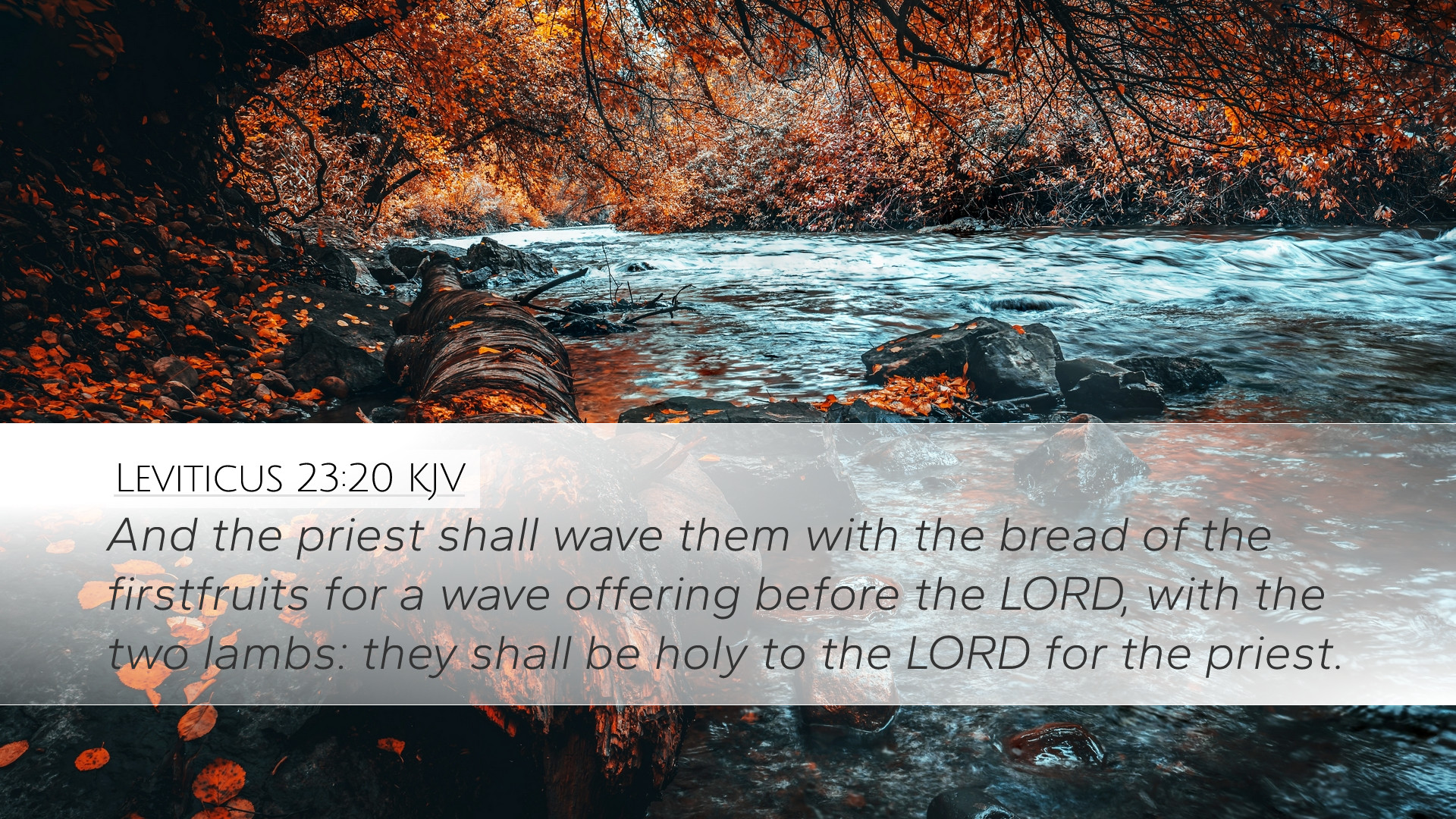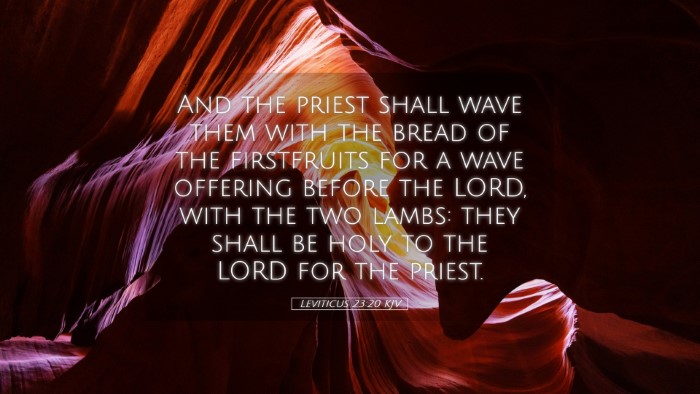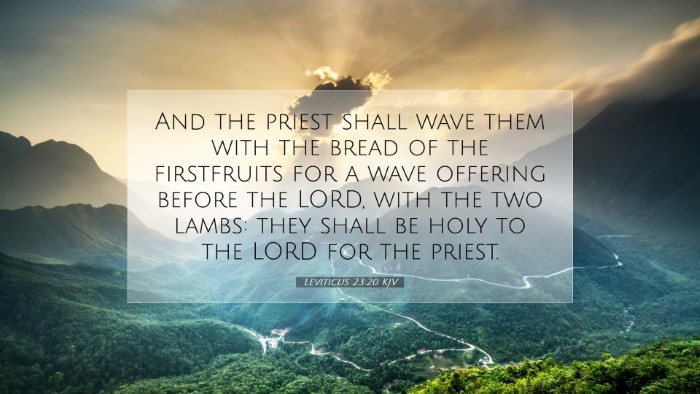Commentary on Leviticus 23:20
Bible Verse: Leviticus 23:20 - "And the priest shall wave them with the bread of the firstfruits for a wave offering before the LORD, with the two lambs: they shall be holy to the LORD for the priest."
Introduction
This verse is part of the Levitical law that delineates the ceremonial offerings that were to be made during the Feast of Weeks, also known as Pentecost. The offerings signify the acknowledgment of God's provision and are steeped in rich theological significance. Various commentators provide insights into the nature of these divine instructions and their significance for Israel and their relationship with God.
The Role of the Priest
Matthew Henry's Commentary: Henry notes the procedural role of the priests, emphasizing that they acted as mediators between God and the people. In the context of this wave offering, the priest acknowledges God’s provision and blessings, making it clear that the offerings are not merely ritualistic but are laden with spiritual significance.
Adam Clarke: Clarke also affirms the priest's ceremonial role. He highlights that this act of waving the bread and lambs signifies the people's dedication of their first fruits to God and their reliance on Him for sustenance in both a physical and spiritual sense.
The Significance of First Fruits
Albert Barnes: Barnes explicates the concept of first fruits, indicating that these were not just the first of the harvest but a representation of the entire crop. By offering the first fruits to God, the Israelites were expressing gratitude and recognizing God's sovereignty over their lives and provisions.
This principle underscores the biblical teaching that the first and best should be offered to God, creating a form of prioritization in the spiritual life of an individual. It encourages believers today to consider what they offer to God from their own resources, talents, and time.
The Act of Waving
Matthew Henry: The act of waving is significant as it is both a physical movement and spiritual symbolism. Henry interprets the waving as an act of acknowledgment and petition, where the offerings are presented to God for His blessing upon the entire harvest. It embodies a holistic view of God's involvement in all aspects of life.
Adam Clarke: Clarke adds that the wave offering serves as a public declaration of the community's partnership with God and each other. This communal aspect emphasizes the collective gratitude and worship that was integral to Israelite worship.
Holiness of the Offerings
The conclusion of the verse states that they shall be holy to the Lord for the priest. This touches upon the inherent sacredness of the offerings made before God.
Albert Barnes: Barnes elaborates on the concept of holiness in this context. The offerings are not just consider as commodities or tributes but are transformed through the act of offering into something sanctified by their intended purpose. They serve to draw the people closer to God, indicating that holiness is intimately connected with divine acceptance and the outworking of God’s covenantal relationship with Israel.
Implications for Today
This passage continues to speak to the church in the New Testament context about the nature of offerings and the attitudes believers should have in their worship and service to God.
Matthew Henry: Henry suggests that modern believers should approach God with the same spirit of gratitude and acknowledgment. The act of giving should come from a heart that recognizes all good gifts come from above, fostering a sense of humility and dependence upon God.
Conclusion
In summation, Leviticus 23:20 is infused with rich theological meaning and implications for the covenant community. Through the insights of public domain commentaries, we see the profound significance of the priestly role, the meaning of first fruits, the act of waving as acknowledgment, and the sanctity of offerings. As we engage with this text, it challenges us to reflect critically on our approach to worship, the resources we allocate to God, and the posture of our hearts in offering praise and gratitude.


